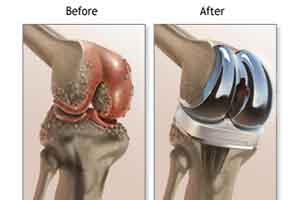- Home
- Editorial
- News
- Practice Guidelines
- Anesthesiology Guidelines
- Cancer Guidelines
- Cardiac Sciences Guidelines
- Critical Care Guidelines
- Dentistry Guidelines
- Dermatology Guidelines
- Diabetes and Endo Guidelines
- Diagnostics Guidelines
- ENT Guidelines
- Featured Practice Guidelines
- Gastroenterology Guidelines
- Geriatrics Guidelines
- Medicine Guidelines
- Nephrology Guidelines
- Neurosciences Guidelines
- Obs and Gynae Guidelines
- Ophthalmology Guidelines
- Orthopaedics Guidelines
- Paediatrics Guidelines
- Psychiatry Guidelines
- Pulmonology Guidelines
- Radiology Guidelines
- Surgery Guidelines
- Urology Guidelines
Mepivacaine - a comeback medicine for pain control in Knee Replacement Surgery

Mepivacaine, as one may remember, a pain control medicine abandoned decades ago is likely to make a comeback as an effective spinal anaesthetic for knee replacement. Mepivacaine is used as a local (in only one area) anaesthetic for an epidural or spinal block. It is also used as an anaesthetic for dental procedures.
Total knee replacement is one of the most commonly performed orthopaedic procedures. It is estimated that the number of knee replacements is expected to increase by nearly 700 percent by 2030 as the population ages.
Dr.Jason Davis along with his associates conducted a study to evaluate the safety and effectiveness of mepivacaine compared to bupivacaine as a spinal anaesthetic for pain control during surgery.
They did a two comparison study, one involved a retrospective review of the clinical results of 156 knee replacement patients and the other involved a smaller randomized study of 32 patients that looked specifically at the timing of nerve recovery in the legs and for urinary control,
The study found that patients who received mepivacaine had better urinary control, faster recovery of nerve function and accelerated recovery compared to those who received bupivacaine.
Dr.Jason Davis said that the study suggests mepivacaine has multiple advantages and few drawbacks compared to bupivacaine as a spinal anaesthetic in knee replacement surgery.
According to Dr Jason “It shows promise as an ideal anaesthetic by working long enough for most knee replacements without the excessive duration that can delay patients’ recovery.”
Bupivacaine was successfully established in the 1990s, use of mepivacaine became limited after research showed it had a higher incidence of post-surgery complications like nerve irritation.
Bupivacaine binds to the intracellular portion of voltage-gated sodium channels and blocks sodium influx into nerve cells, which prevents depolarization. Without depolarization, no initiation or conduction of a pain signal can occur.
The possible side effects of the drug mepivacaine include rash, wheezing, trouble breathing or swallowing, acidosis, signs of methemoglobinemia etc.
But many recent studies do not agree with those previous concerns and emphasised that Mepivacaine has shown improved side effects with improved recovery of normal nerve function.
Dr Davis says. “Choosing the right anaesthetic may now be the key to attain a faster recovery with a lower risk of complications after surgery. Such shorter acting medications have the potential to become the new standard for regional anaesthesia during the migration to outpatient joint replacement.”
The study concluded that mepivacaine was found to be as effective for controlling pain with fewer side effects as bupivacaine. Patients who received mepivacaine recovered normal function faster, which allowed for a quicker recovery and shorter hospital stay and did not display worse pain control or transient neurologic symptoms afterwards.
The study was published in The Journal of Arthroplasty.
For more reference log on to:DOI: https://doi.org/10.1016/j.arth.2018.01.009

Disclaimer: This site is primarily intended for healthcare professionals. Any content/information on this website does not replace the advice of medical and/or health professionals and should not be construed as medical/diagnostic advice/endorsement or prescription. Use of this site is subject to our terms of use, privacy policy, advertisement policy. © 2020 Minerva Medical Treatment Pvt Ltd